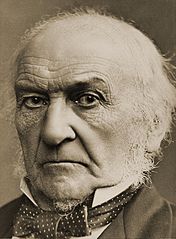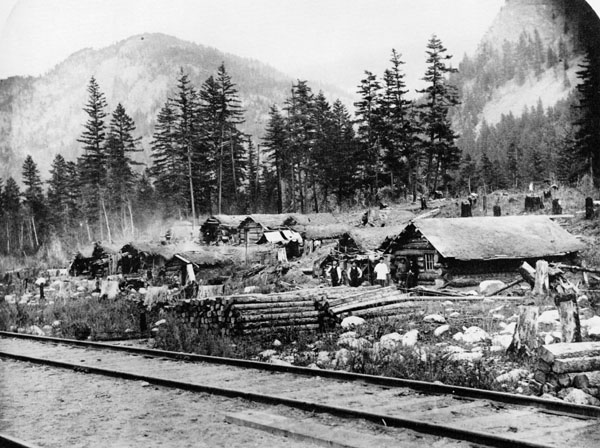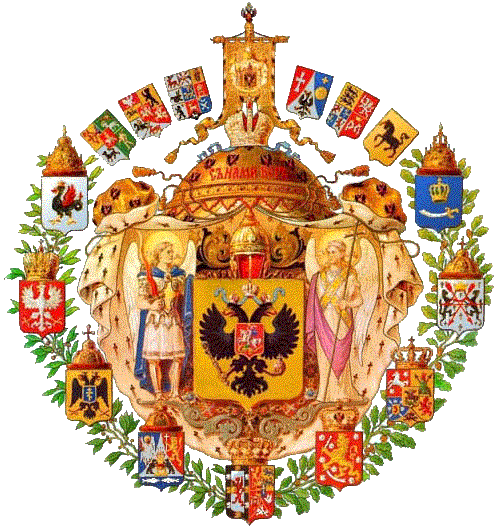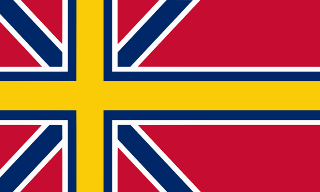Events of the World: 1866EuropeThe British government began a program to try and shift public opinion in India to be more loyal to British Rule. Schools were built and analysts met to discuss the best methods.
(-£1,020, reserve level partially restored, +3% public support)
As a result of the recent peace in Europe, a number of land transfers, sales, and ship movements took place.
(-£5,000 to Britain, -£1,000 to the USA, +£1,000 to Russia, +£5,000 to France, -1 ironclad, -30 ships-of-the-line, -20 screw frigates, -30 sail frigates, -10 transports, all to France, +1 ironclad, +30 ships-of-the-line, +20 screw frigates, +30 sail frigates, +10 transports, all to Britain, +5% equipment to Britain)
An election was held in Britain, and was won by William Gladstone.
(+5% public support)

New Prime Minister of the United Republic, William E. GladstoneIn France, Emperor Napoleon III took a tour of the newly acquired lands in Canada, rallying public support amongst the people.
(-£120, +5% public support)
The Mexican/French treaty was implemented, giving benefits to both nations.
(-£5,000 to Mexico, +£5,000 to France, +1 navy sublevel to Mexico, +5% equipment to Mexico, +1 resource sublevel to France)
A university in Paris was founded, named 'Le Grand Université d'Adam'. It hoped to become one of the best in the world.
(-£320, +4% education rate)
An ambitious order was put through by the Prussian government to shipbuilders. Although they quickly got to work, the scale of the order dwarfed their capacities, and so the order was not able to be completed.
(-£14,200, +5 ironclads, +5 ironclads in 1 turn, + 7 transport ships, +7 transport ships in 1 turn, +7 transport ships in 2 turns)
A meeting was held to discuss the unification of the German states into one unified empire. Although there was some support by the common people, many nobles who were unwilling to relinquish power were less supportive. The meeting stalled, and it was decided it would be best to wait, with the next meeting slated for early next year.
The Prussian army conducted a series of drills to better prepare themselves
(-£540, +1 army sublevel)
The Austrian government implemented a propaganda campaign to try and impose a pan-Austrian identity on its citizens.
(-£140, +4% public support)
Hoping to alleviate the poor education rate in the empire, the Austrian government reformed and improved the education system, using the Swedish model as a guide.
(-£200, +5% education rate)
Naval drills were conducted to improve the training and skill of the sailors, with emphasis on defensive manoeuvres and working with land-based artillery.
(-£530, +1 navy sublevel)
Under the guidance of Louis Gerard De Geer, the Swedish parliament was reformed to make it more democratic.
(-£160, +4% public support)
Trading and port facilities were upgraded in Swedish coastal cities, in order to increase the efficiency of trade.
(-£510, +1 infrastructure sublevel)
Incentives were offered to those willing to work or invest in Swedish factories, resulting in an increase in industrial output.
(-£520, +1 industry sublevel)
Financial incentives were offered to Dutch entrepreneurs and industrialists to set up new factories and expand existing ones.
(-£490, +1 industry sublevel)
With the blockade lifted, Dutch ships could now travel the seas again. Influence was expanded in the Sanda and Arafura seas, and new areas around the region came under Dutch influence.
(new territory gained, +1 resource sublevel in 2 turns)
A closer political relationship was offered to the Ashanti Empire north of the Dutch Gold Coast. The Empire accepted the economic opportunities and military protection, as there was much anti-British feeling in the region.
The Russian military provided government funding to military inventors in order to encourage new technology.
(-£250, +4% equipment)
Lands east of the Urals was given to emancipated serfs. it was a long trek and poor land, so few took up the offer.
(-£400, +1 resource sublevel in 2 turns)
Roads and railways connecting European Russia to Siberia were planned, and construction began. It was a difficult and expensive process, however.
(-£550, +1 infrastructure sublevel)
The Romanian government was reformed and restructured, with additions to the Paris Convention forming a parliament and a senate of Romania.
(-£150, +4% public support)
Funding was placed into improving the industrial output of Romania.
(-£560, +1 industry sublevel)
Many of these new factories went to work producing better quality equipment for the Romanian army.
(-£180, +4% equipment)
Using the techniques learned during the battles in Sicily and southern Italy, new tactics were formed by the Italian military to better repel future amphibious attacks.
(-£500, +1 army sublevel)
The Regina Marina was expanded with new ironclads built and some other sailing vessels refitted with armour and steam.
(-£6,400, +7 ironclads, -3 ships-of-the-line)
Exploitation of resources in the newly acquired lands began, particularly in Venice and Tyrol.
(-£230, +1 resource sublevel)
The Ottoman Government called upon the Egyptian government to accept the de-vassalisation order. After the example set by Tunisia, the Egyptian government was more willing to listen.
(+3% public support)
Another call for Jihad was issued by the Caliph, calling on all true Muslims to fight against his enemies. There was a swell of volunteers for the army.
(+200,000 conscripts)
Training and drilling of the Ottoman army went ahead, with foreign experts providing guidance and knowledge. The Sultan made many visits to barracks to improve morale.
(-£490, +1 army sublevel)

Ottoman cavalry practising a chargeIn Greece, railroads were built to connect major industrial areas.
(-£540, +1 infrastructure sublevel)
With the Straits of Gibraltar no longer closed by the British, a Greek vessel managed to slip through into the Atlantic. They landed near a town in West Morocco and declared it to be a colony of Greece. The Moroccan government ignored them, and the Greeks eventually returned home. Many wondered why Greece would attempt to colonise an area that was already a semi-civilised nation and had recently been acknowledged as in the Spanish area of influence.
Rewards were offered to anyone who could come up with new designs for weaponry. A few designs were accepted and production was slated to begin in the new year.
(-£300, +4% equipment in 1 turn)
The Spanish government introduced a plan to increase the industrial output of the nation.
(-£500, +1 industry sublevel)
The Spanish government issued a public proclamation of support for Egyptian sovereignty in the face of the Ottoman de-vassalisation. Although the response was muted in Egypt, the mostly-Catholic population in Spain received it well. There was some small damages caused by Eqyptian nationalists.
(-£100, +3% public support, small decrease in income to the Ottoman Empire)
The AmericasThe Quebec Treaty was ratified by the US senate, allowing the purchase of land from Britain.
An attempt was launched to try and find Jefferson Davis, but he managed to slip onto a ship bound for Britain. Fortunately, the ship was stopped and searched, and the man was discovered and returned to Washington to stand trial.
With the war now over, the US army was disbanded and sent home. A number were offered the chance to stay in the military as regulars. The army under the command of Grant was sent into the South to make sure it peacefully absorbed back into the USA.
(USA/CSA armies disbanded, +39,800 regulars)
Factories were built throughout Mexico to promote industrial output.
(-£520, +1 industry sublevel)
Using British designs, factories began producing better quality rifles and cannons for the Mexican army.
(-£300, +6% equipment)
The Mexican army conducted drills to improve it's quality.
(-£550, +1 army sublevel in 1 turn)
Attempts were made in Colombia to improve the quality of education and to make it more accessible to everyone.
(-£240, +5% education)
Infrastructure was increased in Colombia, focusing on river boats and canals, making use of the many rivers in the country.
(-£510, +1 infrastructure sublevel)
The returning troops from the USA brought with them examples of the weaponry used in the conflict. Reverse engineering yielded designs for better quality equipment.
(-£270, +5% equipment)
Better roads and railways were built in Northern Brazil, with hopes of linking it with the more developed south better.
(-£520, +1 infrastructure sublevel)
Harbour facilities in southern Brazil also were improved, however progress was slow.
(-£530, +1 infrastructure sublevel in 1 turn)

Painting of Rio de Janeiro by Friedrich HagedornThe number of factories was increased along the coast of Brazil.
(-£520, +1 industry sublevel in 1 turn)
In Argentina, a complete overhaul of of the military occurred, with the implementation of a strict professional military regime.
(-£560, +1 army sublevel)
Immigration to Argentina from other South American and European nations was encouraged, with plots of farmland used as incentives.
(-£190, +0.18% population growth)
Argentinean weapons makers liasoned with their European counterparts to adopt their procedures and techniques.
(-£210, +5% equipment)
AsiaQing generals studied recent and older battles to understand what went right and what went wrong, in order to improve the chances of success for future battles.
(-£500, +1 army sublevel)
Military arsenals were implemented all over the country, to ensure higher quality equipment was available to all sections of the military.
(-£270, +5% equipment)
Railways continued to be built all over China, this time focussing on the regions of Shaanxi, Gansu, and Qinghai.
(-£520, +1 infrastructure sublevel in 1 turn)

Chinese railway worker's campIn Japan, shares in Japanese factories were sold, in order to raise funds for future economic growth.
(-£150, increased income)
incentives were offered to anyone willing to invest in Japanese factories.
(-£500, +1 industry sublevel)
Training camps were set up in the north in order to help Japanese soldiers adjust to colder temperatures, now that Japan was fighting in Kamchatka.
(-£530, +1 army sublevel)





















